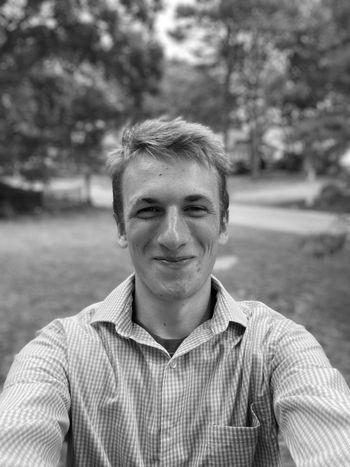Pro-Palestine student group in Massachusetts uses readings from Lenin, Stalin, and Palestinian terrorist hijacker in 'summer camp'
A pro-Palestine group in Northampton, Massachusetts held an event called “coffee with comrades,” where participants, including students, criticized capitalism and discussed alternatives.
A pro-Palestine group held an event in Northampton, Massachusetts entitled “coffee with comrades,” where students critiqued both Israel’s counteroffensive in Gaza and capitalism.
The group involved around 20 people, including both graduate students and members of the local community, according to The Boston Globe. The organizers of the event brought a Palestinian flag.
The “summer camp,” as the organizers describe it, was officially titled the “Western Massachusetts Popular University for Palestine.”
Campus Reform has previously reported that Massachusetts is no stranger to pro-Palestine demonstrations, with protests occurring at Emerson University, Harvard University, Boston University, Northeastern University, the University of Massachusetts, Amherst, and more.
[RELATED: U.S. Senators meet with Jewish students as campuses brace for disruptive fall protests]
Harvard President Claudine Gay resigned in January following her perceived failure to condemn calls for genocide on campus.
According to The Globe, the primary speaker at the Western Massachusetts event wore a keffiyeh and a Cuban Communist Party hat during his presentation. The speaker referenced readings from Vladimir Lenin and Joseph Stalin.
The presentation also included a reading from Leila Khaled, a militant and member of the Popular Front for the Liberation of Palestine (PFLP). Khaled was famously the first woman to hijack an airplane.
“Our political system is falling apart,” said the speaker, a PhD candidate at the UMass Amherst named William Chaney, during an interview. “If we want to leave the world better, we have to look back and learn lessons.”
Some of the students attending the “summer camp” specifically critiqued capitalism as a system of economics.
“Capitalism is a very individualistic system,” said Ava Harrington, a student at UMass Amherst. “What’s most important is community — preserving life and preserving community.”
“It felt like the blueprint, [or] the mappings of a better society,” added Owen Buxton, a student arrested for protesting near Emerson University in Boston. “It felt like living outside of this capitalist, white supremacist patriarchy could actually be possible within my lifetime, which was inspiring.”
[RELATED: Jewish leaders anticipate return of anti-Semitic, anti-Israel college protests]
Students also frequently mentioned the ongoing war between Israel and Palestine, often taking pro-Palestine stances.
“The situation in Palestine is one that is directly in opposition of that kind of world that they’re envisioning,” said Nuriel Vera-DeGraff, a student at Harvard University.. “The reason that so many of us here in the US on college campuses are doing this with Palestine is because of American complicity.”
Jake Green, a graduate student at UMass Amherst, described his school’s administration’s decision to clear the pro-Palestine encampment set up by students as undemocratic. “The lack of democracy at the school directly leads to what happened with the encampment,” Green contended.

